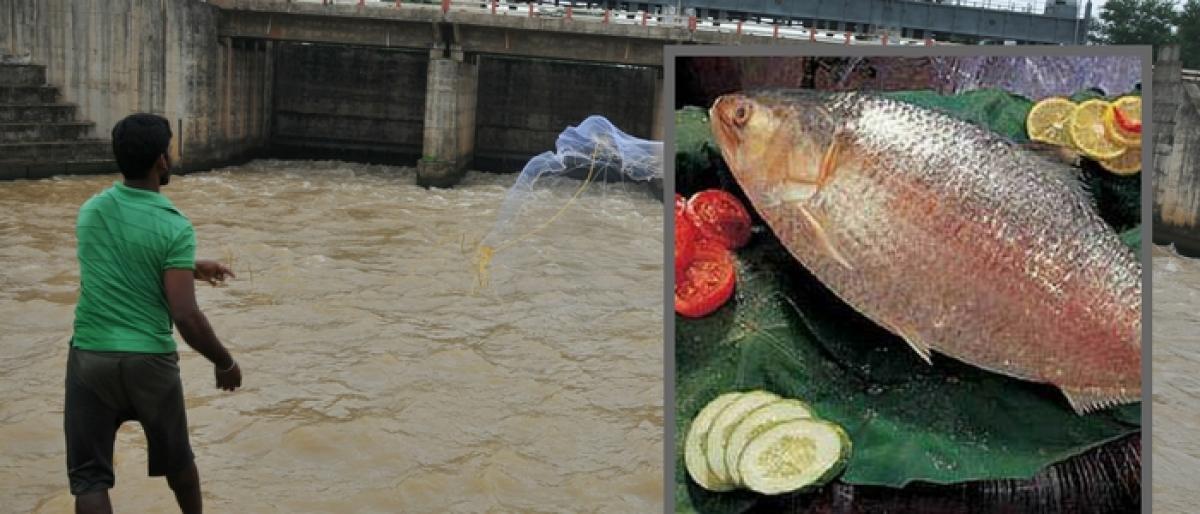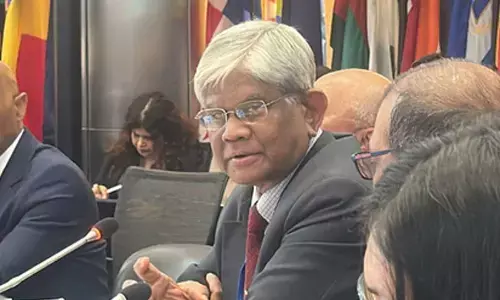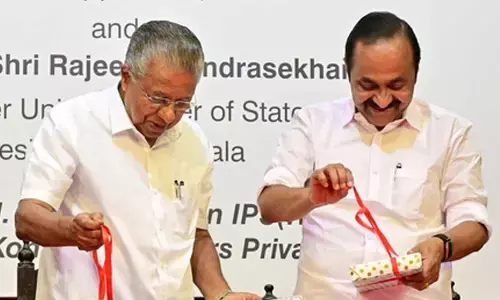Pulasa brings cheer to food lovers

Pulasa, an exotic fish species, comes calling, tickling the taste buds of food lovers and bringing cheers for the fishermen at Sir Arthur Cotton Barrage at Dolweswaram in the current season.
Rajamahendravaram: Pulasa, an exotic fish species, comes calling, tickling the taste buds of food lovers and bringing cheers for the fishermen at Sir Arthur Cotton Barrage at Dolweswaram in the current season.
The exotic fish is available for catch from the last week of June to August only and this is the time when fishermen make a fast buck. Pulasa, setting aside its size and weight, costs more and is in great demand because of its unique taste.
It has got a plenty of stories as to how the particular species helps go-getters please the people at the helm. There are instances where some enterprising politicos in the Godavari delta region secure the tickets from their political bosses by supplying the delicious pulasa at the time of elections.
So also the employees in the lower rungs use it to keep their top brass in good humour. There is a popular phrase in the Godavari districts - 'Pustelu Takattu Pettina Pulasa Tinali' meaning one should eat pulasa even by pledging his wife’s mangalasutra.
True to this maxim, the Godavari people will devour it to their contentment and its soaring price, of course, never matters.
According to GV Rao, Assistant Director, Fisharies Department, its name is Hilasa Ilasa. The fish is known as Vilasa while in marine water and later called as pulasa after entering into fresh and sweet waters of the Godavari river.
The tasteless vilasa in the sea metamorphoses into a delicious pulasa. It begins its marathon journey from the sea into sweet waters of the Godavari. After entering into the river it burns its fat and becomes slim in the process so as to be tasty. More the tasty it is more the distance it travels in the river, it is said.
The fish takes 12 hours to traverse a distance of 80 km from the confluence point of the river and up to Dowleswaram, which is the last point on its journey.
The Assistant Director added that the fish comes into river waters for breeding purpose and returns to the sea after the breeding.
Pulasa can be identified with its glistening body. Because of increasing industrial pollution, the fish is said to be changing its course towards Odisha, indicating the fact that it will be scarce at Dowleswaram in the near future.
Last year, a kg of Pulasa was sold from a minimum of Rs 5,000 to Rs 8,000 because of its heavy demand. A mature pulasa lays 0.1- 2.0 million eggs in fresh water.
S Dhanaraj, a fisherman, said arrival of the species was noticed at the barrage a few days ago and more arrivals are expected in August. And, hordes of sleek cars flooding the barrage is, of course, a sign of its arrival.


















